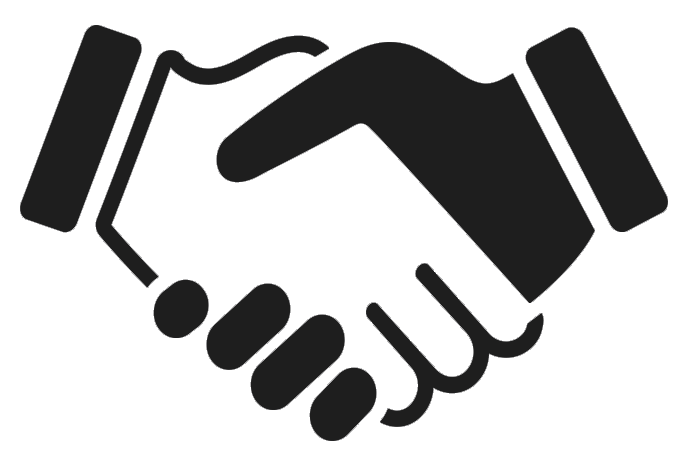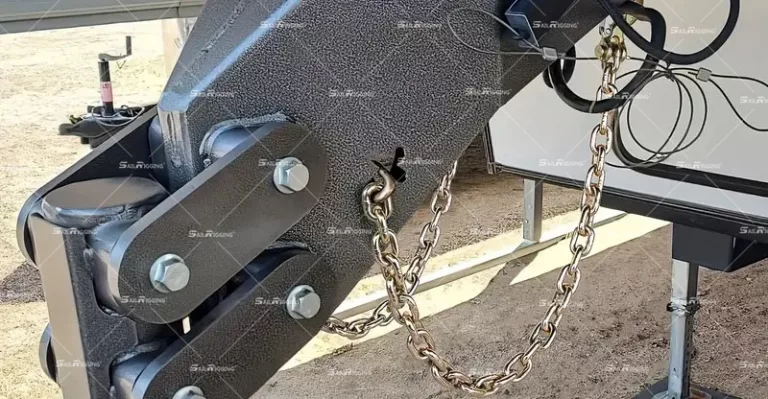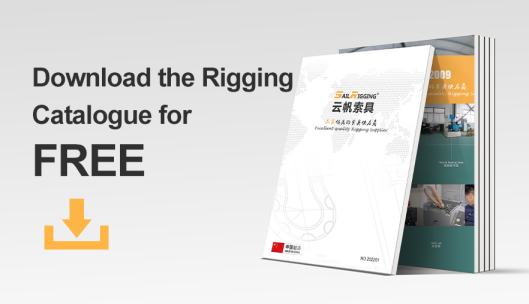A safety chain is a flexible tension device usually connected between the towed vehicle and the towing vehicle and normally has sufficient strength to prevent separation of those vehicles if the primary coupling device fails.
Where To Use A Safety Chain?
A Safety Chain is widely used in towing, marine and recreational vehicles (RVs), which are especially important for load security. They reduce the risk of detachment and enhancing overall safety during transportation.
- Safety Chains For Towing
Standard Towing Chains: Used in light-duty towing applications, such as securing small trailers to vehicles. These chains offer a backup connection to prevent the trailer from detaching if the primary hitch fails.
Heavy-Duty Towing Chains: Designed for larger trailers or vehicles, heavy-duty chains are used in commercial and industrial towing applications where stronger chains are needed to secure larger loads.
- Safety Chains In Marine
Boat Docking Chains: Used to secure boats to docks or moorings. These chains act as a secondary connection in case the primary mooring line or rope fails, ensuring that the boat remains safely in place.
Anchoring Safety Chains: Used in marine anchoring systems, safety chains provide extra security to ensure that vessels remain securely anchored, especially in rough or turbulent waters.
- Safety Chains For RV Trailers
Recreational Vehicle Chains: Safety chains are used to secure RVs, trailers, or caravans to towing vehicles, ensuring that the load remains connected during travel. These chains are crucial for preventing detachment and accidents, especially when traveling on highways. These chains prevent the trailer from becoming unhitched from the towing vehicle. They act as an additional fail-safe connection when towing trailers of any size.
What Is The Material Of A Safety Chain?
Safety chains must be constructed from durable, high-strength materials to ensure they can handle significant loads and stand up to environmental conditions. The choice of material and surface treatment depends on the specific application.
- Carbon Steel: Carbon steel chains are commonly used for standard towing and transport applications. They are cost-effective and offer adequate strength for everyday use.
- Alloy Steel: Alloy steel chains are stronger and used in heavy-duty applications where greater strength is required, such as commercial towing or marine applications.
What Is The Surface Treatment Of A Safety Chain?
- Self-Color with Oil: These chains have a natural, untreated finish with a protective oil coating to prevent rust during storage. They are often used for non-exposed, indoor applications.
- Galvanized: Galvanizing provides a protective zinc coating that helps prevent rust, making these chains ideal for use in outdoor and marine environments.
- Powder Coating: This finish provides additional protection against corrosion and wear, especially for heavy-duty towing chains exposed to harsh conditions.
- Stainless Steel Finish: Stainless steel safety chains typically have a polished finish, ensuring long-lasting durability and a resistance to corrosion, especially in marine environments.
Safety chains play a vital role in ensuring the security of trailers, RVs, boats, and other vehicles during transit. It’s very important to know what is a safety chain and how to choose safety chain. If you don’t know how to choose safety chain, please don’t hesitate to contact Sail Rigging.





